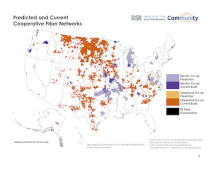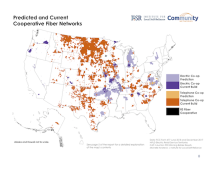AT&T Is Abandoning Tens of Thousands of American Households in the Deep South Who Have No Other Internet Access Option
All across the country, municipal networks, cooperatives, and cities have been putting in extra effort to make sure that Americans have the fast, affordable, reliable Internet access they need to conduct their lives in the midst of the COVID-19 pandemic.
AT&T has decided to take another route. A USA Today report last week revealed that the company has stopped making connections to users subscribing to its ADSL Internet as of October 1st. Anyone calling the company to set up new service is being told that no new accounts are being accepted.
The decision comes right as the National Digital Inclusion Alliance has released a report detailing that only 28% of AT&T’s territory can get fiber from the company. AT&T has deliberately focused investment in more urban areas of higher income. From the report:
The analysis of AT&T’s network reveals that the company is prioritizing network upgrades to wealthier areas, and leaving lower income communities with outdated technologies. Across the country, the median income for households with fiber available is 34 percent higher than in areas with DSL only — $60,969 compared to $45,500.
The Deep South Hit Hardest
As of today, it looks like the most conservative number of those affected by the decision will be about 80,000 households that have no other option. Our analysis using the Federal Communication Commission’s (FCC) Form 477 data shows that the Deep South will be hit the hardest (see table at the bottom of the page).
Collectively it means more than 207,000 Americans who, if disconnected, will have no option for Internet aside from their mobile devices or satellite service. The number of Americans affected by the decision but which have additional wireline options is higher: roughly 2.2 million American households nationwide subscribe to the service (see map, below).











